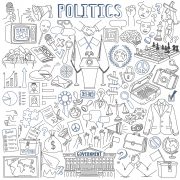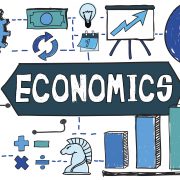Finance giant JPMorgan is considering moving its headquarters out of New York City and its gleaming skyscraper buildings. While the company is playing coy with these reports, it has already been slowly relocating many of its operations and jobs to lower tax locations in Ohio, Texas, and Delaware. The Lone Star State currently hosts 25,000 of its employees, and Texas will likely surpass the New York portion in coming years.
The resulting move will harm the middle earners of New York far more than that of the wealthy, who can easily move to a better tax climate. Not only is the state tax structure prohibitive, but Alexandria Ocasio Cortez may be responsible for the pink slips at JPMorgan, which anticipated thousands of educated technology workers to come to the area as part of the planned Amazon headquarters in Queens. But after the freshman lawmaker lobbied against the project, the retailer changed plans. Many good jobs and the growth they sustain at JPMorgan will likely follow.
The exodus is part of a trend sweeping traditionally Democratic states over the last several years. Whether it is the state and local tax deduction changes or burdensome regulations, the trend is becoming increasingly clear. General Electric pulled up stakes from Connecticut awhile ago, and Cigna is considering doing the same. A whopping 1,800 businesses left California in 2016 alone, while manufacturing firm Honeywell moved its headquarters from New Jersey to greener pastures in North Carolina.
None of this is news to businesses or to readers of my columns. However, there seems to be no learning curve among the liberal governments of these tax happy locales. So why are we looking to federalize this model? Democratic presidential candidate Elizabeth Warren has proposed this tax model on steroids should she be elected next year. For her, along with many of the politicians in these blue states and cities, the planned taxes and regulations are meant to be targeted mainly at wealthy citizens.
However, the primary losers in this formula are middle class workers. Between the loss of jobs and revenue, these states and cities press even harder on millions of middle income taxpayers to make up the difference. There is a pervasive ripple effect of driving large companies from former business hubs. Not only does each corporation create thousands of jobs, but the business is a critical part of the local economic foundation.
What will happen when JPMorgan leaves Manhattan? The cumulative effects of rents unpaid, restaurants not frequented, and investment in the surrounding area will jeopardize much smaller businesses dependent on corporate employee dollars. JPMorgan will likely be the vanguard of the coming business exodus. It is not just a hypothetical situation, as changes in corporate taxes have had this effect before. Consider the effects of an anchor business leaving a city, just as the financial sector may consider darting New York under the tax plans of Warren or Bernie Sanders.
The loss of an industry harms the middle class far more than corporate stakeholders, as seen in Rochester, New York, when one of the largest employers, Eastman Kodak, hit hard times. Once a center of filmmaking technology, Rochester grew as Eastman Kodak did. At its peak in the early 1980s, the company employed more than 60,000 people in the area. Over the next few decades, it fought a losing battle with digital technology, employment costs, and the New York tax and regulatory scheme. After years of steep decline, the company filed for bankruptcy in 2012.
Today, Rochester is in dire straits. The average household income is only half of the national average and its once burgeoning middle class is now a hollow shell of its former self. Its population has fallen by a full third since 1960. The city ranking as the 16th sharpest population decline between 2010 and 2017, according to census figures, It is also ranked as one of the worst cities to live in the country. The effects of the fall of Eastman Kodak cascaded into other businesses in Rochester. Pensioners dependent on the company face uncertainty. Restaurants, services, and real estate companies all languish as the local economy continues to sputter.
Many of the Democrats running for president, or who are in charge of the blue state economic models, do not see the next Eastman Kodaks. By making it impossible for businesses to operate, they will inevitably harm middle class workers they seek to help. Corporate boards can create golden parachutes for themselves or declare bankruptcy. A shift worker awaiting a corporate pension does not have the same financial luxury.
Politicians love to preach that their proposals will make the economy fairer by targeting the most productive members of their states and cities. However, the encompassing butterfly effect spells bad news for people like you and me. Every time you vote for a proposition or a candidate promising a repeat of bad policy, just remember that it will ultimately be the middle class that will pay the largest share. So much for fair taxes.
Kristin Tate is a writer and an analyst for Young Americans for Liberty. She is an author whose latest book is “How Do I Tax Thee? A Field Guide to the Great American Rip-Off.”













